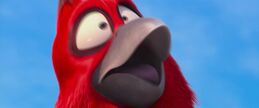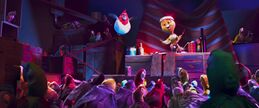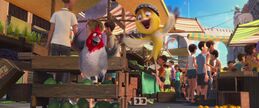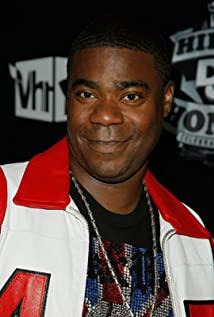http://news.sina.com.cn/green/news/roll/2011-04-20/113422326268.shtml
Note: The original title is "The little blue macaw, the protagonist of "Rio Adventure", has become extinct in reality" by beans Friends "Marcelino" remind, should be "extinct in the wild"
http://www.sina.com.cn 2011 Nian 04 Yue 20 Ri 11:34 China Youth Daily
to welcome full of sun, samba and carnival Festival of Rio de Janeiro! On vacation? Not for Bru. As the last male little blue macaw in the world, he came to Brazil from the United States to be an important task. Here is the last female pearl of the same kind in the world—their meeting is to continue the species.
This is the plot of the recently released cartoon "Rio Adventure". Back in reality, Brue does have his "bird". In 1819, the German natural historian Spikes discovered a parrot with blue feathers in northern Brazil. This kind of parrot is also named the Spikes Macaw. Since its body length is only about 55 cm, it is relatively small compared to other macaws. The Spikes Macaw is also known as the Little Blue Macaw.
Brazil is not the only habitat for the little blue macaw. The "Smurfs" of this bird are mainly distributed in South America, including tropical rain forests in Colombia, Venezuela, Argentina and other places.
But with the increasing scope of human activities, the number of this blue parrot is decreasing year by year. Especially in the 20th century, Brazil did not hesitate to cut down large areas of virgin forests in order to develop its economy. According to data from the Brazilian National Geographic and Statistics Bureau, Brazil’s forest area has been reduced by half compared to 400 years ago. In the past 30 years, 1/6 of the Amazon rainforest, the largest rainforest in the world, has been severely damaged.
On the other hand, in 1956, Brazil introduced West African bees in order to improve the European bees that were raised locally. This kind of honeybee crosses with European honeybee to form a new species, which is fierce and aggressive. It is also called "killer bee". This hybrid bee has become the natural enemy of the little blue macaw. When they build a nest in the same tree, the bees will attack and sting the parrot.
But for the bird, the greatest pain is the loss of freedom. According to research done in 14 Latin American countries, biologists found that 30% of parrot nests are poached, and that 400,000 to 800,000 parrot chicks may be taken from the nest every year. For wild parrots, this is an unbearable blow-out of all 145 species of parrots in the Americas, 46 species are facing extinction.
This is especially true of the little blue macaw. They are unusually beautiful and attract the attention of poachers. They are captured and sold on the market to supply private collectors. Just like Brou in the movie, he was trafficked to the United States by smugglers when he was still young. As a pet, Blu has been kept artificially for a long time, and he can't even fly.
Under successive blows, the number of little blue macaws has dropped sharply since the 1970s. In 1986, there were only three wild blue macaws left in the world, including a pair of breeding birds and a lone bird. Only a year later, two of them were captured by poachers, leaving only one male.
Just like Brue in the movie, this wild bird in real life is also trying to find the other half. After screening the relevant conditions, a female bird caught from the wild in 1987 attracted the attention of scientists. They thought that the little bird named Natasha was probably the male bird's ex-mate.
Sure enough, they get along very happily. Just as everyone was expecting this pair of wild little blue macaws to breed offspring in the world, a tragedy happened. Two months after Natasha was released into the wild in 1995, she touched a power line and died.
This Bruce in real life has completely become a "lonely bird". He later tried to fall in love several times, and even established a family with a different species of wild purple-blue macaw. In the end, this unusual couple hatched two young chicks in 1999. But when the fertility plan just started, the bird father suddenly disappeared.
Now, scientists have determined that the Spikes parrot has become extinct in the wild and has included it in the critically endangered category in the "World Conservation Union's Red List of Endangered Species". In this catalog, among the 9,856 surviving species of birds in the world, at least 1,244 are endangered, and 62 species are listed as "unknown data", most of which may have long since disappeared on the earth.
I don't know where the only remaining wild little blue macaw is, I hope it can, like the Brue in the film, finally fly with his lover on the sunset sea.
Intern Li Feiran
View more about Rio reviews











